Immerse yourself in the world of ambient and field recording, an exploration of the invisible yet omnipresent aural tapestry that blankets our lives. A pioneering juncture of art and technology, this practice gifts us the power to capture, curate, and communicate the sounds of our world, transforming the way we perceive and interact with our surroundings. Our journey starts from the fundamentals, delving into the roots, the required equipment, and techniques that make this sonic endeavor possible. We then traverse the landscape of active listening, understanding how this method shifts our perception and awareness. Lastly, we examine the practical applications within diverse fields and get acquainted with the pioneers of this realm.
The Fundamentals of Ambient and Field Recording
Harmonizing with the Symphony of the World: The Primer to Recording Ambient Sounds and Soundscapes
The world, in its breathtaking entirety, dances to the sweet symphony of life; every gentle breeze, each rustling leaf, the steady rhythm of urban life — all composing an orchestra of sounds that sing the beautiful narrative of our existence. Recording these ambient sounds and soundscapes, is akin to capturing the very soul of the earth.
In essence, recording ambient sound is the art of giving voice to silence — a process of uncovering and transforming the subtle, often overlooked whispers of nature or the environment, into a significant, perceptible tapestry of musical expression. But how does one harness the rhythms of the planet into a tangible symphony? It begins with understanding the foundation on which sound recording is built: field recording.
Field recording is based on the concept of capturing audio in its natural element — outside the constructs of a traditional recording studio. The rich cacophony of a bustling city street, the serene composition of a quiet forest, the rhythmic percussion of a pounding rain or the syncopated dance of a busy anthill, all fall within this realm of harmonious narratives.
Engaging in field recording demands an open ear and a discerning perspective. The most crucial tool, however, is the recorder. Digital audio recorders offer high-quality recordings, often in Wave or MP3 formats, that maintain the integrity of the captured sound. Further, the use of external microphones, like binaural microphones that imitate the human hearing process, can capture a captivatingly life-like audio experience.
Acoustic ecology, the study of the relationship between living beings and their environment through sound, guides this process. Soundwalks, essentially guided or self-directed explorative walks dedicated to attentive listening, are a fundamental practice of acoustic ecology. They present an invaluable opportunity to explore the potential soundscapes before the recording process, adding depth and dimension to the art.
Integral to this pursuit is respecting and embracing the intricacies of the environment. Unlike studio recording that seeks to eliminate background noises aiming for a singular sound, recording ambient sound involves a significant switch in philosophy. It involves embracing these “background” sounds; the melodic chirping of the birds, the resonant hum of civilization, and the sighing of the wind all become part of the musical narrative.
Captivating soundscapes don’t just happen; they unfold on the canvas of silence. Recording these audioscapes requires adopting a measured pace, showing patience, and developing a keen ear for unique sound patterns. Fine tuning your sensitivity to the subtle nuances of sound can lead to an incredible array of recordings that bring the listener right into the heart of the soundscape.
In summary, recording ambient sounds is about capturing the essence of a place or moment in its auditory form. This symphony of life, with its various sections from the cascading waterfall to the bustling traffic junction, breathes life into the pure essence of human experience. Whether it serves as environmental texture for a film, the base for a new musical piece, or an evocatively tantalizing podcast, this rich palette of ambient sounds transitions from being mere backdrop to center stage, intertwining irrevocably with our perceptions and memories.
Indeed, if music is the universal language, then the ambient sounds of the world are the conversations the earth has with itself. Recording these sounds, therefore, is not just an act of art; it is a testament to life as we hear it, an archive of our very existence. The world is an orchestra waiting to be conducted; will you pick up the baton?

The Art of Listening: Experiencing the World Through Sound
Immersing ourselves in the rhythms, textures, and patterns of natural sounds, we become attuned to the intricate concert playing around us. It’s like finding oneself amidst a persistent orchestra, one where every sound plays a pivotal role, be it the rhythmic patter of rain, the serene murmur of a bubbling brook, or the gusty sigh of the wind. Field recording presents us with this opportunity – to pause, listen, and marvel at the diverse symphonies painted by Mother Nature.
Amid the cacophony of modern life, field recording offers an invaluable reset button by tuning our ears to the earth’s score. The hiss of leaves rustling, the melodious liquid gold of a lark’s song, the sonic heartbeat of a city’s bustle – it all comes alive vividly, echoing infinitely in our minds. By recording ambient sounds, we immerse ourselves into a realm of sensory amplification, birthing newfound respect and connection with our immediate surroundings.
Crucial to this awe-inducing journey is the constant evolution in field recording technologies. Be it capturing tropical rainforests’ dripping sonorities or the dense, pulsing beat of an urban sprawl, these devices have opened up new edges of authenticity. Hand-held recorders and stereo microphones, with their wizardry of transformation, make possible a rich, immersive audio experience that’s near indistinguishable from the real-life source.
Beyond the realm of pure audio aesthetics, these ambient recordings also find profound utility in our everyday lives, facilitating creative expression across various domains. Imagine an indie filmmaker bringing alive a cinematic landscape, a soundscape with texture and depth, achieved solely through ambiance and field recordings. Or a musician weaving in the chirps and trills of a sunrise chorus into a soul-stirring melody. The potential is astounding, teetering on the edge of limitless.
Ambient sounds have a storytelling uniqueness of their own. The spectral quality of a wind whoosh, the subdued hum of a nocturnal insect community, the euphony of a morning’s dew settling; these are not merely sounds – they unveil profound narratives of our environment. Indeed, the language isn’t binary nor alphanumeric; it’s spectral, pulsating, oscillating, a sonic dialect that spans across all beings.
Furthermore, the recorded ambient sounds become an essential historical record, a sonic postcard of our times. With increasing urbanization and the perils of climate change playing havoc with our ecosystems, these sound bites are invaluable. They serve as aural reminders of the rapidly changing soundscapes of our planet, an archive of our existence.
In conclusion, ambient and field recording serve as a powerful tool to foster an intimate connection to our environment, bringing the otherwise unseen and unheard to life. It expands our sonic horizon, tuning our senses to a broader range of frequencies, thereby enriching our perception of the world. As we step out into the sound-filled world, let’s not just hear; let’s truly listen. Strike a chord to that! Whether we’re donning the hat of an acoustic ecologist, sound artist, field recordist, or an impassioned music lover, each ambient sound represents an unspoken dialogue. Music, in all its varied forms, remains the universal language, and field recording only symbolizes the earth humming its favorite tune. This isn’t just about music. It’s about life’s pulsating rhythms, the chorale of existence, and the harmonies of the natural world.
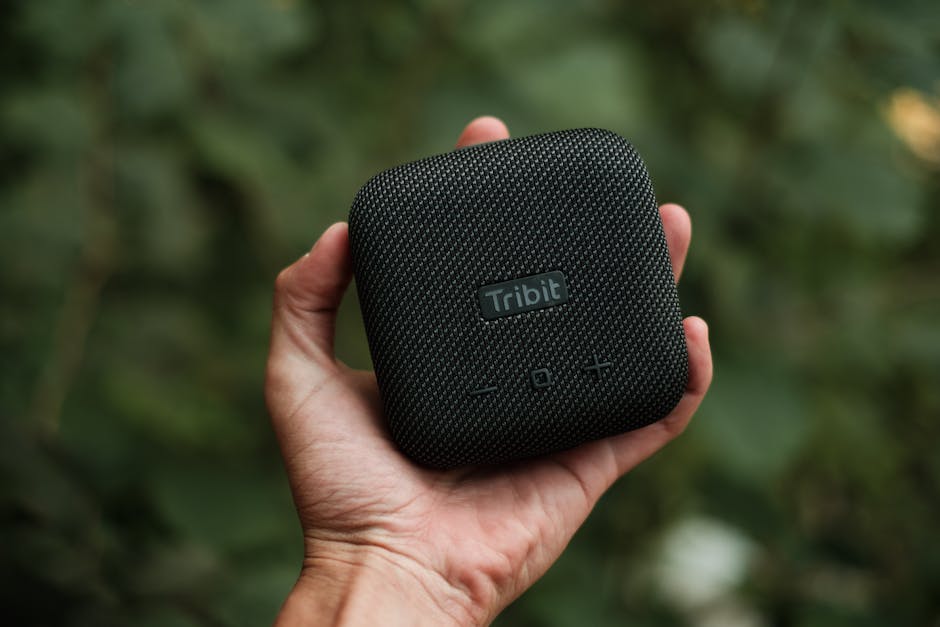
Practical Applications of Ambient and Field Recording
At the confluence of music and nature, field recording and ambient sounds hold a pivotal place. They open a portal not just into the notes of an unseen orchestra but also to the spirit of a milieu in all its unaltered authenticity. Peppered within compositions or as pure standalone pieces, these sonic snapshots have the potency to convey a narrative more dynamic than a thousand words.
In the world of music production, ambient recordings have marched their way into the realm of sound design elements. Imagine the magical element the whisper of a forest breeze, the chirping symphony of crickets, or the urban chatter of a bustling city brings to a musical piece. Musicians and sound designers can weave an intricate tapestry of music where nature becomes the quintessential collaborator. Ambient sounds transport listeners, not just through melodic journeys but spatial ones, drifting from cityscapes to echoing caves, and spiraling rainforests. They form the backbone of immersive aural experiences and add depth to the dimensionality of music.
Yet, its influence stretches beyond music to forms of audio-visual storytelling such as film and video. Ambient sounds breathe life into cinematic environments, creating a sense of place and time that is palpable to the viewers. Oftentimes, it is these subtle layers of atmospheric audio that truly plunge a viewer into the heart of the narrative. From the rustling leaves and distant birdcalls in a jungle scene to the white noise of a busy restaurant, these background hums solidify the illusion of reality within the make-believe of movies.
Moreover, ambient sounds have found a home in the ever-evolving domain of podcasts, where rich soundscapes serve as invisible set designs to create compelling auditory narratives. They add texture to podcasts, transforming them from monologues to holistic sound experiences. For instance, a podcast about life in a mountainside village takes on another layer of navigation when brushstrokes of folk tunes, the distant tolling of a church bell, or the chatter of market-goers pepper the background.
Field recording is a tool that fosters intimacy and builds bridges between the human and the natural worlds. It urges us to uncloak our senses to the splendor of the natural world, to the music that wafts from every corner – in the rustle of the wind, the symphony of the wildlife, even in the steadfast rhythm of our own heartbeat. It implores us to pause, marvel, and find beauty in the crescendo of a thunderstorm or the tranquil melody of a stream, rendering it an organic conduit to more mindful living.
Furthermore, ambient sounds serve as a sonic archive, preserving the endless dialogues between man and his environment. The soundscapes we capture today serve as a testament to our existence, documenting the ever-evolving symphony of life that will echo for posterity.
Field and ambient recording paints our world with its resonant voice, a sonorous panorama that serenades us with its natural charm. The crux of their magic lies in their ability to transcend language and border, uniting us in one universal melody – the music of life. Therefore, the art of recording ambient sounds and field recording is the world, strumming its favorite tune and introducing us to the joy of listening beyond just hearing. The ultimate message, however, lies in the pressing need to preserve these inimitable harmonies by safeguarding our environment, the grandest concert stage of all.
In essence, the fusion of field recording and ambient sounds into various facets of sound expression is not just an artistic choice but an intimate exploration of our existence, a timeless chronicle that connects us back to the roots of our primal ballad.

Notable Works and Practitioners of Ambient and Field Recording
Ceding the limelight to pioneering artists, musicians, and composers in the arena of ambient sounds and field recording, the legacy they have bestowed upon the soundscape of the world is nothing short of remarkable. These individuals have offered ingenious ways of listening, and have discoursed profound narratives about our environment through their meticulous and creative fusion of ambient sounds and music.
In the vanguard of pioneers, John Cage, lauded as one of the most influential characters in ambient music, pushed the bounds of conventional composition through his piece “4’33”. His radical approach of incorporating silence and environmental sounds into his music has had a profound impact on the genre’s evolution, teaching us that there is no such thing as absolute silence, and that the ambient noise often deemed as background, is indeed music in itself.
Echoing Cage’s ethos, Brian Eno, further augments the expansive loom of ambient music. The illustrious creator of the ambient album “Music for Airports,” Eno’s effortless manipulation of mellifluous tones and subtle textures conveys an insightful lesson that music can be designed to modify one’s state of mind. His work, both meditative and invigorating, is a testament to the multi-faceted impact ambient music can have on our mental state.
Famously known for his extraordinary ability to incorporate natural and industrial sounds into ambient textures, Steve Roach is another maestro worth mentioning. His fascinating inventory of ambient music conscientiously intertwines tonal elements and abstract sounds, teaching us about the boundless palette of noises that can come to life through music.
When considering the impact of field recording, no acknowledgment would be complete without Chris Watson. From capturing the ferocity of an Amazon rainstorm to the ethereal whistling of Antarctic wind, Watson is a testament to the storytelling power of nature. He paints vivid auditory pictures, akin to van Gogh’s brush on a silent canvas, reminding us of the profound narratives that can be deciphered from the world around us through careful and attentive listening.
In recent times, artists like Jana Winderen and Francisco López have emerged with avant-garde approaches to field recording. Winderen’s work, often sourced from remote and inaccessible habitats, explores the intricate harmony of concealed soundscapes, demonstrating that ambient sounds can be novel, mysterious, and awe-inspiringly rich in texture. López, on the other hand, goes beyond simple recording, often manipulating raw environmental sounds to create unique auditory experiences that challenge our understanding of ambient sounds.
Collectively, these artists reaffirm that ambient and field recording are more than mere platforms for technical prowess. They reveal the inherent melodic poetry that unfolds within the cacophonies of the city, the delicate whispers of the wilderness, the dramatic roars of the ocean. Through their contributions, these artists urge us to dispel our aural indifference, to truly listen, and to understand that the intricate sounds of our world are not merely background noise, but an essential orchestration encapsulating the pulse of life.
In a world increasingly consumed with visual stimuli, these pioneering musicians serve as reminders to keep our ears open, to seek stories and meaning in the often overlooked auditory details, and to foster a harmonious connection with our sonic surroundings. The artists invite us, time and again, to truly listen, to hear the hidden melodies and unpredictable harmonies. To ultimately perceive the symphony of the world beneath the cacophony, and to hum along.
In conclusion, the ramifications of these artists and their contributions to ambient and field recording reveal an immediate challenge and opportunity – to reorient our listening practices, to thread silent stories through sound, and to contemplate the music transpiring in our everyday lives. As we journey into the deepest crevices of sound, we begin to unearth the unspoken narratives that lie within the auditory landscapes, echo the pulsations of music’s universal language, and ultimately, harmonize with the earth’s resonating hum.

The Future of Ambient and Field Recording
Harnessing the Potential of Technology in Enhancing Ambient and Field Recording
The evolution of technology has opened up myriad possibilities in the realm of field recording and ambient music, promising even greater levels of realism, depth, and subtlety in audio capture. Binaural microphones, once a niche and expensive technology, are now increasingly affordable and accessible, potentially making every ‘ear’ in the world a conduit for shared auditory experiences.
Augmented reality and Virtual Reality strides have posed tantalizing new prospects for enveloping listeners in soundscapes previously consigned to headphones. Imagine immersing yourself in the boisterous coastlines of Maine or the tranquil breezes of a Japanese bamboo forest, your physical reality transformed by a pristine, field-recorded soundscape. The spatial audio capabilities of these technologies promise, in time, to make this a shared, communal experience.
Drones offer another compelling frontier for field recording. With the capacity to capture sound in places previously inaccessible to human recordists, drones could vastly extend the scope and perspective of field recordings. The sonic landscape of a forest, for example, would reveal remarkably different textures when captured from the ground versus from an aerial perspective.
Artificial intelligence (AI) is an underrated player in the field recording and ambient sounds arena. With commendable precision, AI has the potential to identify and tag distinct sounds within complex soundscapes, such as identifying different bird species within a forest dawn chorus. Not only would this add an educational layer to field recordings, but it could also provide unique tools for composers and sound designers, such as the ability to isolate specific sounds from an ambient recording with unprecedented accuracy.
Machine learning, a subset of AI, offers intriguing possibilities for the evolution of ambient sounds. Algorithms could analyze vast amounts of music and sound to generate new ambient soundscapes, resulting in potentially endless generative music. This opens up potential for unique, personalized ambient experiences, as soundscapes may be tailored to an individual’s preferences or moods.
There’s also imminent transformation in the way field recordings are preserved and shared. Blockchain technology, while most associated with cryptocurrencies, has the potential to create decentralized, permanent archives of recorded sound. This could prove an invaluable resource for sound artists, researchers, and anyone interested in preserving the auditory heritage of our planet.
There should be anticipation, but not without a note of caution. As technology enables us to capture, analyze, manipulate, and share sounds in ways never before possible, there’s an imperative need to reflect on the ethics of these advancements. How do we negotiate the right to privacy when drones can potentially record sounds anywhere? How do we preserve the sanctity of natural spaces while making them accessible through VR? How do we avoid monotony and homogenization, when AI algorithms favor sounds and patterns that tend to get the most engagement?
These considerations ought to inform our journey to the future of ambient and field recording. Yet despite its complexities, technology, if wielded with sensitivity, holds the promise of deepening our connection with the beauty and diversity of sounds around us, weaving it into our lives in ways we are just beginning to imagine. As intriguing as circumnavigating the auditory globe from the comfort of an armchair might sound, its future appeal may well lie in its capacity to make us more passionate listeners, more connected to the intricate symphony of our sonic environment and, ultimately, more human.
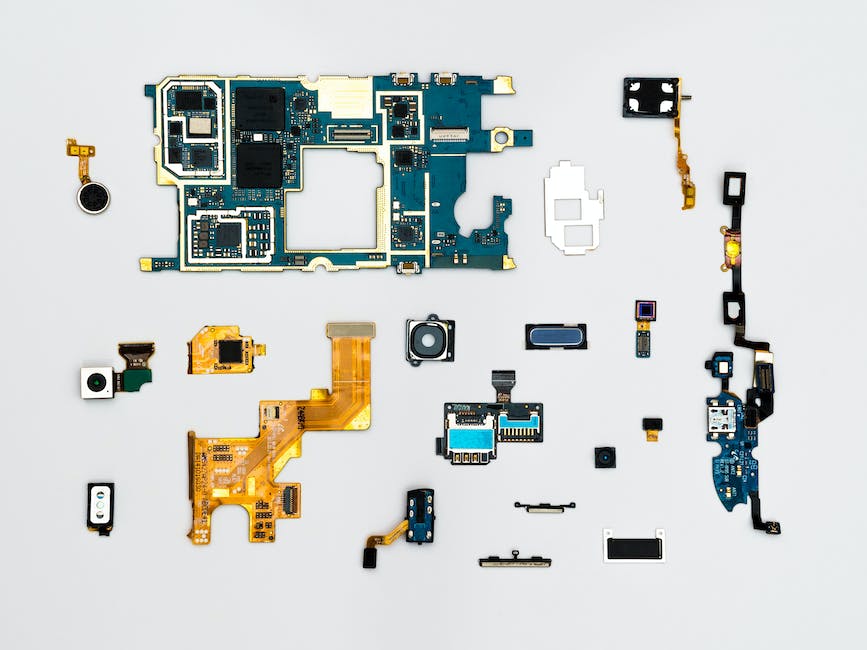
The fascinating tapestry of ambient and field recording doesn’t end here. As technology evolves, bringing new equipment and systems like spatial audio, virtual reality, and AI into the fray, field recording is set for an ambitiously innovative future. These developments promise to expand our capabilities, push creative boundaries, and open doors to unimagined sonic possibilities. The enduring allure of this discipline lies in its capacity to reveal the intricate details of our acoustic environment, foster new connections, and inspire ingenuity. So, let us keep our ears tuned to the world around us, eagerly anticipating what unheard symphonies the future of ambient and field recording might unveil.
In the world of digital music recording, aligning the rhythm of creativity with the pace of technology can be an intricate dance. The invisible yet impactful factor that often interrupts this harmony is latency – the time delay occurring between feeding in an input like a strum of a guitar, and receiving an output, such as hearing the sound via headphones. This abstract time gap has a potent ability to derail the melody creation process, affecting the authenticity and fluidity of the sound produced. Understanding the concept, technical aspects, and implications of latency, along with having the knowledge of how to identify and minimize it, is essential in achieving quality recordings that echo the true essence of the musical idea.
Understanding the Concept of Latency
Latency: the invisible specter that silently haunts the hallowed halls of music production. An element often overlooked, yet its impact is indecisive in the ultimately delivered sonic masterpiece. But what exactly is this latency we speak of, and why should it matter in music recording?
In its simplest form, latency refers to a short duration of time that passes from the moment an audio signal is input into a system until it emerges from the output. Restrained within the confines of a digital audio workstation, this slight delay may not seem more than a blip. Yet, delve deeper, and the magnitude of its influence unfurls, attesting to the profound impact of split-seconds.
Primarily, latency is inherently dependent on the buffer size of an audio interface, the electronic device that bridges the analog-digital divide. This buffer acts as a temporal vault, holding the digital data from the music being recorded before pushing it through the interface’s converters. The bigger the buffer size, the higher the latency.
So, why exactly does this matter? For an ardent musician in the throes of a passionate performance, high latency is tantamount to a dancer missing a beat or an actor flubbing a line. It transforms the rhythmic relay of expression into a disjointed echo, forcibly icing the flowing lava of creativity.
Envision immersing yourself in the swirling melange of a symphony. Each instrument, each note, plays a critical role in birth the harmonious whole. If one note trickles late into this musical river, it distorts the entire auditory landscape.
In recording setups where the artist is listening to their input through software-based monitoring, high latency can result in the performance being off-beat. It’s akin to running a relay race where one team member is trailing. Once that synchronization wavers, the entire dynamic discordantly spirals.
On the flip side, however, low-latency is desired, not required. Depending on the genre and style of music, an artist might manipulate latency to create a specific effect or rhythm. Remember, even proofed bread sometimes needs irregularities to give it flavor.
In conclusion, latency is much like a spy in the world of music recording, unseen yet operative. It dutifully retains and releases data, dictating the temporal texture of the ultimate composition. Pay heed to this ghost in the machine. Acknowledge its existence and learn its ways, for every moment counts in the seamless symphony of sound we create and cherish. Navigate latency, and you navigate an undercurrent of rhythical synchrony, securing your place in the grand chronicle of melodious mastery.

The Technical Aspects of Latency
Plunging into a world where rhythm, harmony, and melodic symphonies run wild, latency may appear as a fishbone, pricking the soft palate of a delicious audio feast. In essence, latency represents an irksome game-changer. It’s the drop of ink in the pitcher of milk, disrupting the fluidity of an immaculately orchestrated composition.
Riding the waves of both analog and digital sounds, audio recording and the compilation of tracks often represents an art form of sorts but is not quite immune to the disruptive influence of latency. Often, latency sprouts from data transmission and processing time-gaps, leading to an unwanted delay between the triggering of an audio signal and its output. In practical terms, it’s the stumbling rift between the strike of the drum and the moment it rings in your ears.
In situations where multiple tracks are being recorded simultaneously, latency assumes a more disastrous persona. This monstrous delay can prove fatal, burdening the artist’s creativity by destroying the rhythm and flow, leaving a warlike scene of discord and disharmony on the producer’s console. Misaligned vocals and clashing chords could lead to an artistic catastrophe, turning a magnum opus into meritless cacophony.
The process of compiling tracks also suffers the wrath of latency. Imagine the heartache of discovering your expertly calibrated vintage snare recording is slightly out of time with the pulsating rhythm of the bass track due to latency! This hitch may force to recompile or even re-record parts, costing an artist precious resources of time and energy.
Yet, it isn’t all woe in the battle against latency. A resilient musician can actually turn this sonic fiend into a creative ally: a tool used to create unique audio landscapes. For instance, manipulating sounds with varying latency times can create an interesting rhythmic texture or a psychedelic echo chamber!
However, care should be taken whilst inviting latency into the creative process. Even the most adept musicians can struggle to effortlessly surf the wave-lapse latencies can introduce. On some unfortunate occasions, these experimental wanderings can lead to a maze of confused sounds and muddled beats. The line between art and mishap can often be blurred by the illusion of tricky echoes and delays.
In conclusion, understanding and managing latency is just as crucial as striking the perfect chord. High latency can cripple the expressive soul of a composition, fracturing the seamless blend of tones into a discordant array of sounds. Yet, with careful manipulation and management, latency can also give birth to unique audio experiences. As they say in the realm of music — sometimes, it’s the silent gaps between the notes that make the symphony.
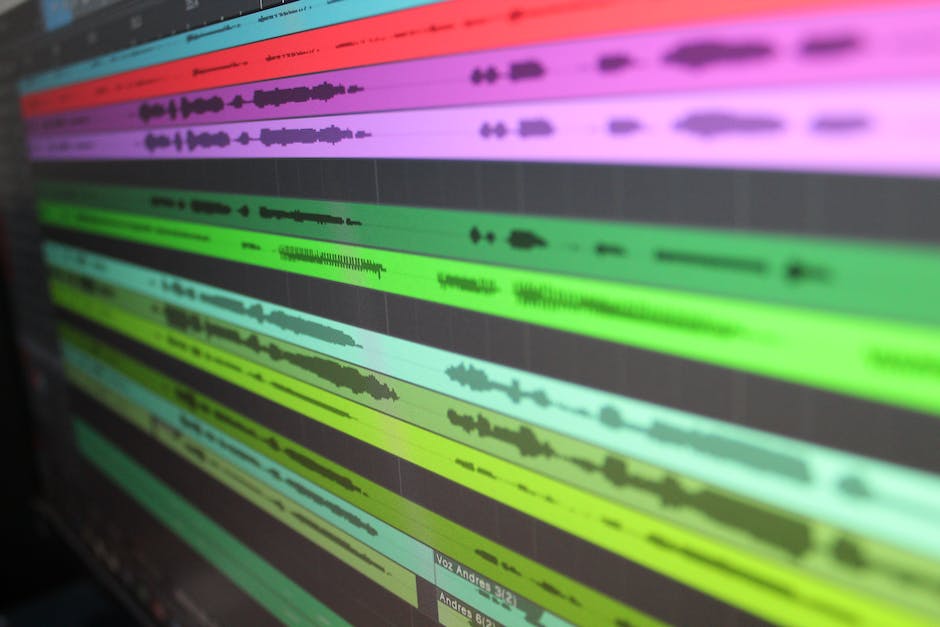
Identifying Latency Issues
Just as a symphony weaves together threads of sound into a melodic masterpiece, or the raw energy of a live rock concert thrills its audience, the symphony of the recording process also relies on precision and synchrony. Yet, just as an instrument out of tune can mar the gracefulness of a musical piece, so too can latency issues drag down the efficiency and quality of a recording session. Identifying and conquering these issues is pivotal for refining the artistic composition that lies within the raw notes of a masterpiece.
Think of the latency issues as an uninvited guest, creating higher delays in your garden of creativity. If left unresolved, they can cause audio tracks to sound out of sync or detract from the artist’s desired tonality. Isolating these issues requires a keen ear, an understanding of your recording infrastructure, and a knowledge of how to interpret the mechanics of audio software and hardware.
Start with your hardware and connections. Are they in good health? Check for potential signal degradation or poor cabling that might contribute to latency. Also consider the audio interface; is it capable of handling your ambitious ensemble of tracks without losing its pace? If your existing setup is potent enough and your connections are free from any signs of wear and tear, then it’s time to investigate at the software level.
Digital Audio Workstations (DAWs) are the control rooms of your creative endeavors. Review your DAW settings, particularly the audio buffer size and sample rate. If the latency issues are persistent, try altering these settings and monitor the resulting output. And while we’re speaking software, take note of your plugins. Some may contribute more to the latency due to their design and the processing demand they place on the system; judicious selection and sparing use of plugins can help in reducing latency.
Audio monitoring can be a revealing exercise. By closely listening to the recordings and noting the sections where delays are noticeable, you trace the footprints of latency. Once latency lurks have been located, further philosophical and technical investigations can lead to their origin.
Yet, remember, latency is not always your adversary. Just as an offbeat drum rhythm can introduce an unexpected twist in a piece, latency, harnessed intentionally, can be an avenue for creative rhythm manipulation and intriguing sound design. Disrupting timing and synchronization could become a novel, albeit courageous, method to emboss an original footprint in your masterpiece. But taming this wild beast requires an advanced understanding of your musical gear and a bold ear for experimental sounds.
In the grand symphony of music production, latency can appear as a dissonant note disrupting the harmony. But with the right understanding, sharp acumen, and appropriate tools, the dissonance can be transformed into a bridge towards a breathtaking crescendo. Music, after all, is no stranger to the beauty of harmony arising from a well-resolved discord.
Embrace latency; let it not be a hindrance to creativity. Instead, let it inspire a new degree of innovation, a way to push boundaries and challenge the conventions of sound. For the musical journey is not just about reaching its conclusion but also about finding novel rhythms and harmonies along the way. Latency, in this light, becomes yet another fascinating layer in the canvas of music production.

Strategies to Minimize Latency
Striding further into the depths of music production, it’s clear that minimizing latency is an art form unto itself. This journey doesn’t stop at just acknowledging latency’s existence or its various effects but extends to the deployment of effective strategies designed to tackle this unseen adversary. Woven into the fabric of music production, these methods reverberate with the promise of smooth harmonics and immaculate rhythm.
Close examination of the digital audio workstation (DAW) is one of the critical skills in the repertoire of a music producer dealing with latency. It’s not just about knowing the layout, but more so about delving into its intricate settings, tinkering and adjusting until latency is reduced.
This path to latency-less recording naturally goes through plug-in optimization. Some plug-ins are notorious latency-inducers due to their inherent design and resource requirements. Prioritizing processing-demanding plug-ins, optimizing their settings, and bypassing non-essential ones during recording are keys to keeping latency at bay.
Turning vantage to the spotlight: hardware. It’s easy to forget about the physical components amidst the allure of software programs, yet interface, converters, and peripherals play a measurable role in latency. Opt for high-speed interfaces like Thunderbolt or USB-C, employ high-quality converters, and ensure peripherals are in tune with the whole recording system. These choices undoubtedly form a defense line against high latency.
In the realm of digital audio, the clock is king. A well-synced system clock contributes to a more harmonious musical environment by maintaining synchrony between different hardware components. Using a dedicated external clock or a high-quality internal clock can help reduce latency and enhance overall sound quality.
There’s also the necessity of real-time monitoring that acts as the ears of the producer. This technique entails directly monitoring the signal during the recording to notice if any latency issues arise. While it doesn’t solve latency issues per se, real-time monitoring gives one the vantage point to detect and correct them before they become embedded within the recording’s sonic fabric.
Delving deeper into the realms of music and sound, one can explore the innovative concept of offline processing. By bouncing tracks with processing-demanding plug-ins and then disabling these plug-ins, latency can be drastically reduced. This approach demands a significant time commitment, but the latency gains may well justify this.
At the heart of these strategies looms a central tenet: knowledge. Knowing the tools, understanding the recording system, being aware of the plug-in demands, mastering the DAW. Every piece of information is a weapon towards achieving a latency-free recording environment, shaping the path to exhibit the true intention of the music conceived.
In the grand composition of music production, minimizing latency by employing these strategies is equivalent to tuning a guitar or setting the right pace on the metronaught. In the world where latency can be a disruptive discordant note, innovatively crafting a latency-friendly environment is no less than clearing a stage for the symphony to play its magic. Music production, after all, is all about harmony, rhythm, and precision. The journey towards a latency-minimized setup is a fascinating aspect of this strings-pulling craft, striking a crescendo of fascination in its lovers.

Tools to Help Mitigate Latency
Marching Into the Beat of Low Latency Recordings
In the vast world of music recording, a timely harmony has music lovers, producers, and creators swaying to the same rhythm. This same resonance should also vibrate within the technical aspects of music creation, especially in the quest toward achieving low latency. Now, let’s dip our toes into the vast ocean of tools and equipment that can ably assist us on this journey.
Enter the world of high-speed digital interfaces; these paragons of technology are critical in the eternal war against latency. USB and Thunderbolt interfaces, for example, are highways of swift data transport, considerably instrumental in reducing latency. Equipped with multi-track capabilities and efficient data processing, they ensure a smoother performance, keeping your tune on track and on time without missing a beat.
Nevertheless, a word to the wise: low latency isn’t just about keeping a steady pace, but also about the quality of the relay. High-quality analog-to-digital and digital-to-analog converters significantly raise the bar for smoother recording experiences. These pieces of priceless technology contribute significantly to latency reduction by swiftly converting physical acoustic signals into digital information. The results? A symphony of meticulously captured details that do not skip any heart-wrenching melodies or soul-stirring beats in your recording.
Beyond interfaces and converters, we come to find that the quest for low latency is enhanced by external peripherals, such as high-performance hardware synthesizers or drum machines. These gadgets are designed to integrate smoothly with various interfaces, adding an immersive, tactile experience to your musical creation process. With these additions, latency becomes less of a challenge, replaced with rhythmical precision and a physical connection to the music.
In synchronizing with the harmony of time, choosing a quality audio clock is paramount, vital for ensuring the synchronization of all digital signals, a prerequisite for low latency. Audio clocks guarantee all digital components march in time, maintaining an untainted musical output and unified rhythm throughout your production.
For those treading this path adorned with auditory wonders, real-time monitoring can be a compass pointing towards lower latency. They check for any issues during the recording, so you can immediately react, adjust, and move forward without falling out of sync. Be it the subtle manipulation of a vocal pitch or the rhythmic strum of a guitar, real-time monitoring makes sure the echoes of your creativity aren’t lost in the caverns of unnecessary delays.
Lastly, but certainly not least, let’s turn our attention to the novel concept of offline processing. This powerful production technique takes on plug-ins, applying their effects post-recording and thus liberating tracks from the constraints of latency, leading you into an arena of undisturbed creative expression.
In summary, the tools we choose to wield in our journey of music production can make our voyage towards low latency a thrilling symphony or a dissonant cacophony. The mastery and understanding of our equipment bring us closer to achieving a harmonious composition, preserving the rhythmic delicate dance of music creation.
So here’s to diving deeper into the ocean, to testing the waters, playing with sounds, and engaging with a myriad of innovative tools to ensure our pursuit of the perfect melody remains undeterred by the discord of latency.

Latency, albeit imperceptible to the naked eye, plays a defining role in the realm of music recording. It has the potential to severely affect the quality, authenticity, and emotional intensity of your music. But armed with a deep understanding of latency and equipped with practical strategies for recognizing and minimizing it, you can perform the intricate dance between creativity and technology smoothly. For musicians and producers striving to preserve the pace of their musical theme and striving for fluidity in their work, choosing apt tools and gadgets that mitigate latency issues is a foundation stone for achieving seamless, undeterred, and high-quality recordings. Indeed, overcoming the barriers of latency paves the way for music that truly resonates and echoes with emotional depth and purity.
The omnipresent beat pulsing through a glistening sea of melodies, the tug of emotions effortlessly woven into the tapestry of lyrics – it all begins within the sanctum of an isolation booth. This essay unravels the enigma of isolation booths, diving deep into their significant role in achieving flawless vocal recordings. Peel back the layers of an innovative realm of music production where extraneous noise is eliminated, enabling the capture of intended sounds in their purest form. Within these insightful perimeters, the reader will traverse the sonic landscapes of renowned recording studios, getting acquainted with the craft behind the perfect vocals, the specialized architecture, and the utilization of isolation booths in industries far beyond music.
Understanding the Isolation Booth
Radiating with a magnetic allure to those in the know, the isolation booth stands as an unsung hero in the world of music creation. Often a non-descript, soundproof room, it might not command attention or project grandeur, yet its function is indispensable. It is in these hallowed spaces, lined with acoustic treatment, where the raw, untamed energy of musicians transmutes into the pure audio gold that electrifies our eardrums and sparks fire in our souls.
Nested in the heart of recording studios, isolation booths are crucial pieces of architectural artwork masked as structures of practicality. Their mission is simple yet monumental: craft an environment that isolates sound, curbing unwanted ambient noise, reflections, or bleed from other instruments in near proximity. The musical virtuoso becomes an island, their art uncontaminated by unnecessary auditory debris, bolstering the intelligibility and integrity of the performance.
Imagine the symphony of awe-inspiring vocals, rip-roaring guitars, or heart-thumping bass drums. These elements are beautiful and powerful, yet they need to be distinct, each playing its role to complete the harmonious ensemble. An isolation booth ensures each voice, each strum, each beat has its space to breathe, lending clarity and presence to each facet of the mosaic musical composition.
More than just an echo chamber for sound, the isolation booth becomes an intimate sanctuary for artists to bare their souls, unhindered by distractions or onlookers. This seclusion fosters an unbroken connection between the musician and their instrument, eliciting an uninhibited flow of creativity. An isolation booth – a refuge for vulnerability that facilitates an unflinching dialogue of artistic honesty.
Producers, bridging the gap between the artistry and technicality of recording, appreciate the isolation booth’s offerings of precision control over each recorded track. They mix these isolated elements later into a sonic masterpiece, dictated by their sharp ears and music’s aesthetic demands. The isolation booth, hence, empowers the creative flexibility and control that generate diverse and captivating sonic landscapes.
Evoking images of claustrophobic silence, the isolation booth debunk and shatter the myth. They are a testament to acoustic ingenuity; a solution that enables artists to explore uncharted territories in the realm of sound. Enabling the separation and isolation of sounds helps in creating synergistic sonic experiences that surround, envelop, and sometimes, even transcend the listener.
Bringing to light the weight of the isolation booth in the musical process fosters a newfound respect and marvel for it. It is a silent companion to the symphony of creation, an unsung sentinel that preserves and amplifies the euphoria-inducing sensory journey we consider evolved noise. Endlessly galvanizing the boundary-pushing evolution of sound, and subsequently, music, the isolation booth stands as an icon of unseen yet consequential triumph. Through this complex cacophony, the soul stirs, the heart races, and the world keeps spinning, united by the universal language of music. All thanks to the unassuming acoustic marvel that is the isolation booth.
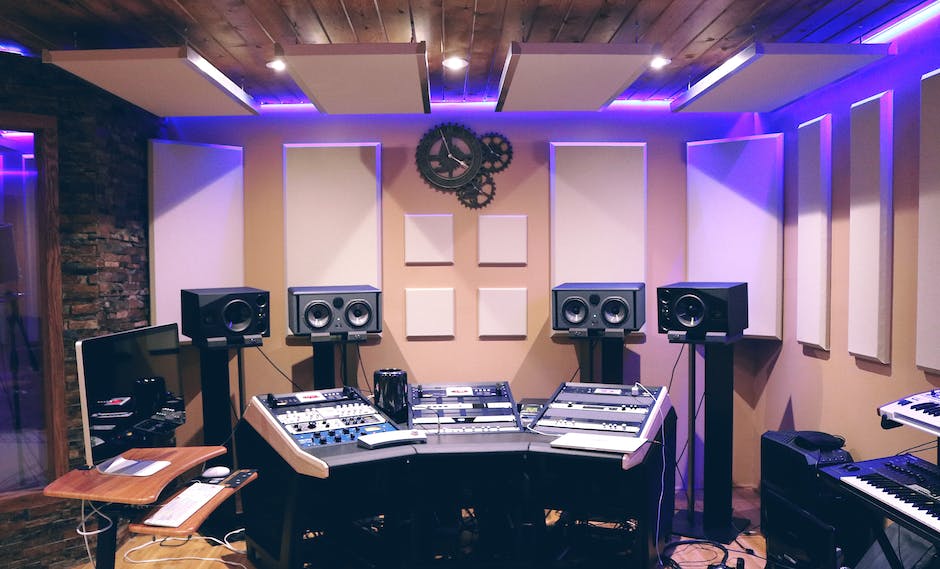
The Craft Behind Pristine Vocals: Isolation Booths in Practice
Nestled in the heart of any professional recording studio, the isolation booth stands as an unsung hero, tirelessly aiding musicians in their quest for exquisite sound. The creation of immaculate vocals, a cornerstone of any music piece, depends significantly on these sound sanctuaries. Uncovering their contributions lets the world appreciate the impeccable vocals we consume daily. After having discussed the importance, functionality, and the array of benefits provided by isolation booths, let’s dive deeper into how these sonic spaces directly impact vocal excellence.
When stepping into an isolation booth, voices flourish in their purest form. The booth works as a cocoon, insulating the musician from all external disturbances, promoting an utterly harmonious relationship between the vocalist and the microphone. This serene setting provides the most intimate environment possible for the recording process. The isolation booth, in this sense, is an incubator for pared-back vocal brilliance.
Moreover, in an era where digital distills reality, the isolation booth remains a haven for analog authenticity. It brings a human element to the table, capturing the vocalist’s emotional nuances, breaths, and sighs that bring life to recorded pieces. The immaculacy and the subtlety that an isolation booth can capture stands unparalleled. In a world dominated by the virtual, these booths offer a tangible connection to the essence of an artist’s performance, essences that listeners may never otherwise experience.
Let’s not overlook the power of “phantom dynamics”. These are minute variations in vocal performances that occur inherently while singing in an isolated environment. An isolation booth impeccably records these subtle shifts, enhancing the overall listening experience by adding depth and dimension to vocal performances.
Additionally, the isolation booth’s auditory seclusion empowers artists to push their creative boundaries. This personal space enables artists to explore their vocal range and capabilities without worry or hesitation. In this exploration, with the confidence of complete sonic solitude, artists can touch heights of vocal performance they may never have reached previously. In this sense, the isolation booth not only preserves vocal clarity but also promotes its evolution.
Even as we navigate the tempestuous sea of Music production, each wave bringing advancements in technology or shifts in genre preference, the solidarity of the isolation booth’s contribution remains unwavering. It remains steadfast in its commitment to capture and preserve the rawest form of human expression via vocals. The isolation booth isn’t just a space within a room, but a declaration of devotion to the integrity, intensity, and artistry of pristine vocals.
Unquestionably, the achievement of pristine vocals is a symphony played by many musicians. Microphones, preamps, digital audio workstations all contribute their tunes. But the isolation booth often provides the stage for this grand performance, the sanctuary where sound finds its highest calling, and vocals become art. This quiet sanctuary, the isolation booth, is a testament to the love of music, the journey to pitch-perfect vocals, and the transformative power of sound.
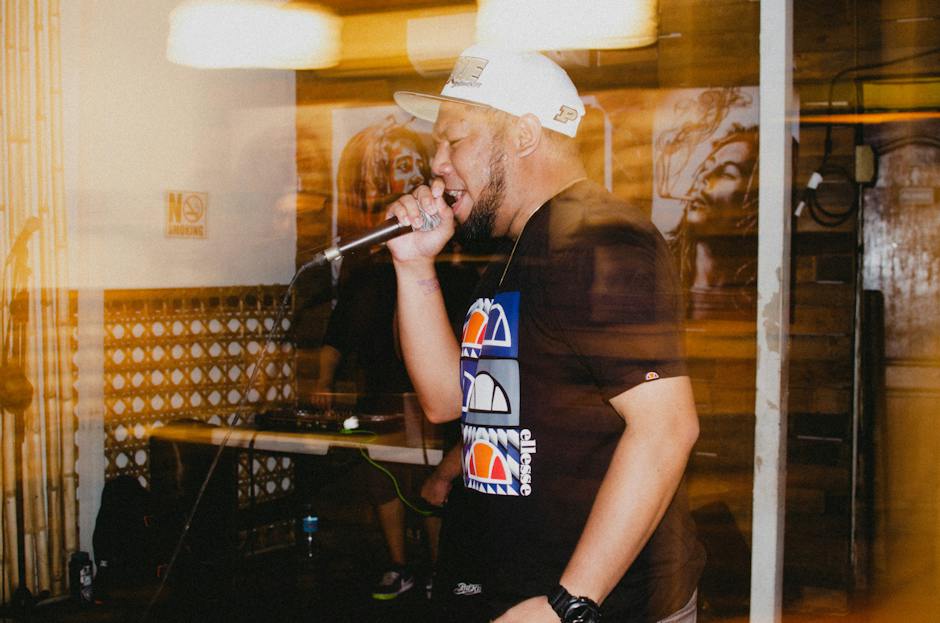
Construction and Materials of Isolation Booths
Reflecting on the splendor of isolation booths in the realm of music creation calls for an exploration into the structural elements and construction techniques that make these booths such magical placeholders in the world of sound. Delving into the anatomy of an isolation booth promises to unveil the science behind the music industry’s obsession with these sound sanctuaries.
An isolation booth essentially stands as a room within a room. The construction primarily uses a combination of sound-absorbing materials to soak up unwanted noise and reflective materials to create the requisite in-booth ambiance. The key objective is to build a soundproof enclosure that ensures minimal audio bleed from and into the booth, thus keeping the recorded sound pristine.
Acoustic treatment is of foremost importance for any isolation booth. Be it the absorptive foam panels lining the walls or the bass traps positioned at corners, every aspect resonates with functionality. The soundproofing approach involves a mix of diffusive properties—to scatter certain frequencies—and absorptive properties—to soak up the echo in the room—striking a balance that resonates with optimum audio clarity.
Moreover, the floating room design adds to the essence of soundproofing. With the introduction of decoupling, the inner stud walls are prevented from touching the outer ones, thus aiding in the reduction of sound transmission. The walls, roof, and floor systems are constructed of multiple layers, often incorporating mass-loaded vinyl, drywall, and a layer of Green Glue for damping; this sandwiched construction method further boosts the booth’s noise cancellation capabilities, providing the pristine environment essential for precision recording.
The entrance to these booths follows an intricate engineering approach, often involving double-door systems for enhanced soundproofing. The outer doors are typically solid, heavy, and equipped with acoustic seals, while the inner doors favor a window design, allowing the artists to maintain visual contact with the outside world, a feature much appreciated by the industry and the artists alike.
Ventilation is another important aspect requiring careful consideration during construction. Silent ventilation systems and air conditioning channels are common elements to guarantee a comfortable environment within the booth. The parameters of airflow efficiency and noise reduction dance hand in hand, dictating the placement and design of these installations.
Finally, covering a spectrum of sonic tastes requires an array of isolation booths of varied sizes and shapes—from rectangular ones favoring flat frequency response to cylindrical or polygonal shapes combating standing waves—all in service to the sweet symphony of perfect sound.
In essence, constructing an isolation booth is a craft that combines science, immense creativity, and deep love for music. It is this intricate artistry of combining absorptive, diffractive materials, double-door designs and silent ventilation systems that transforms a mere structure into an isolation booth, a sacred space where the raw essence of human emotions takes form as timeless melodies.
Unveiling the magnificent architecture of an isolation booth brings to light the astounding precision, the exquisite detail, and the infallible dedication that stand true to the promised marvel of this indispensable asset to the music industry. This understanding propagates a deeper reverence for the enigmatic world of music creation, amplifying our appreciation for the untamed magic of sensory experiences that music is capable of delivering.

Isolation Booths – Beyond the Studio
As the symphony of isolation booth functions resound in our discussions, it’s crucial to note that these stalwarts of sound have applications that go beyond caressing vocals to their finest form. Peering past the commonly touted acoustical benefits, let’s delve into the other, sometimes overlooked, ways in which isolation booths enrich the landscape of sound.
Serving as a haven for instrumental intimacy, isolation booths allow the intricacies of sound produced by a range of instruments to be captured in their raw, unaltered form. This space helps spin a cocoon around the gentle strum of a guitar, the soulful moan of a saxophone, or the tender pluck of a violin string, ensuring that their aural texture is captured in high resolution. It reigns supreme in preserving the sonic authenticity of instruments, enabling the listener to feel as if they are in the room with the performer.
Through the lens of musical education, isolation booths play a pivotal role. Imagine a place that has the capacity to screen out exterior disturbances and help musicians focus on their skills or assist students in acing their music exams. These booths also provide a perfect environment for critical analysis and training. Whether it’s for an intricate guitar solo or brushing up vocal techniques, isolation booths ensure concentrated, productive rehearsal time, maximizing growth.
Scripting the saga of storytelling, the isolation booths help in the domain of audio books and podcast creation. With pristine-quality audio, narrators can dive deep into their art of storytelling, assuring that listeners hang on to every rich and articulate word. Given that podcasts and audiobooks are increasingly swallowed up by today’s mobile society, booths lend the perfect audio clarity, making the experience immersive for audiences.
Casting the net wider, isolation booths can be utilized in scientific and medical fields. Researchers can conduct precise audio-based experiments or tests within these booths, thanks to the precision of audio produced. Similarly, hearing tests and speech therapy sessions can be performed with high accuracy.
The adage ‘Silence is golden’ is embodied in full by isolation booths as they serve as sound-proof sanctuaries in an otherwise cacophonous world. They create a hub for meditation, where the uninterrupted serenity of silence can be savored. This can assist not only musicians seeking mental clarity, but also anyone in need of solace from the bustling noises of the world.
As an instrument for broadcasting, isolation booths guarantee clear, crisp audio. Whether it’s a nerve-wracking political debate or a light-hearted chat show; every syllable, every argument, every laughter can be accurately conveyed to listeners. This is also true for voice-over artists and dubbing studios, maintaining the integrity and clarity of the actor’s performances.
In essence, isolation booths are not confined to the realm of tangible vocals; they transcend to be the chameleons of sound. They are an ode to the passion, the warmth, and the reverence for the intricate webs of sound – creating immersive experiences that ripple through the senses, forging connections, and creating landscapes splashed with the vibrant colors of music. So, next time you think about isolation booths, remember its symphony goes beyond the sheets of music, enveloping everything in its refined resonance.

Photo by leorivas on Unsplash
Iconic Recordings and the Isolation Booth
The embrace of isolation booths among the gaming, film, and television industries.
Silently standing as a sentinel of sonic purity, the isolation booth has seen an extraordinary orchestra of discernable voices, each leaving an acoustic signature in the annals of music history. A quaint melody whispered in solitude, echoes from these booths have transported us on emotional odysseys.
One of the first legendary vocal renditions birthed in an isolation booth’s intimacy is Sinatra’s velvety voice in “In the Wee Small Hours.” Within the booth’s confines, Sinatra conjured up a whirlpool of emotions, with each melancholic note painting vivid narratives of love and loss, forever elevating the album’s esteem in the realm of late-night lonely ballads.
The King of Pop, Michael Jackson, is another luminary in the pantheon of legendary vocalists who sought the sanctity of isolation booths. In the sonic cocoon, Jackson meticulously honed his iconic ‘Thriller,’ as the booth echoed with his susurrant whispers and haunting lyrics, resulting in an immortal masterpiece resonating through the echelons of time.
A sphere of quietude, isolation booths have also served as a backdrop to record-breaking vocal feats. Mariah Carey’s breathtaking five-octave range was immaculately captured within a booth during the recording of “Emotions.” Here, she scaled the highest E note in the history of recorded pop music, forever cementing her as one of the greatest vocalists of all time.
Booths have also incubated captivating storytellers. Take the instance of Bob Dylan’s seminal album, ‘Blowin’ in the Wind,’ recorded in an isolation booth. His verses, precise and articulate, twirled and danced like autumn leaves, baring the raw truth of society, inspiring change.
Isolation booths, beyond being just acoustic bulwarks, also cradle creativity and fuel innovation. When Radiohead recorded ‘Ok Computer,’ Thom Yorke sought refuge in one such nook. The resulting vocals, laden with rich electric echoes, transcended traditional definitions of music, reinventing the facets of experimental rock.
These are just glimpses of the iconic vocals that isolation booths have nurtured. From Aretha Franklin’s soulful ballads to the melancholic harmonies of Amy Winehouse, these booths have captured the essence of emotional expression.
The rich tapestry of music history is interwoven with the tales of isolation booths providing the perfect acoustically-treated canvas for vocal artists to paint their auditory masterpieces. Whether for the soaring operatic notes, the poetic verses of folk singers, or the lyrical journey of rap artists, the isolation booth manufactures these intimate dialogues between artists and listeners.
Inherent in the legendary narratives of vocal recordings is the silent workhorse that elevates them – the isolation booth. As the faithful custodian of vocals, its role reigns supreme in capturing and transmitting the magical frequencies that bind us in the universal harmony of music.
Every genre, every beat, and every syllable caught within these booths reveal the potential of human expression when nestled within the world of music sounds. Each whispered lyric and echoed note is a testament to the transformative power of sound, suggesting the love for music is a shared saga, reverberating from the confines of isolation booths into the hearts and souls of listeners worldwide.

Photo by anastasiya_dalenka on Unsplash
As our exploration of isolation booths concludes, we realize their indomitable presence in shaping the auditory textures of our favorite music. Their purifying influence reaches well beyond the studio confines, echoing through industries like broadcasting, podcasting, and audiobook narrations. The isolation booth’s harmonious marriage of technology and artistry has crafted some of the most iconic vocal performances in history, etching a clear picture of its relevance in our sonic world. Its sanctuary-like aspect, tailored to extract the raw essence of a performance, has become an indispensable hallmark of pristine acoustics. Remember, the next time you’re moved by the crystalline voice of a singer, chances are there is an isolation booth playing the unsung hero in the background.
In the domain of sound recording and reproduction, perfect stereo imaging stands as a testament to an audiophiles’ perfection. Achieving this unparalleled feat takes us deep into the labyrinth of sound manipulation techniques and understanding beyond the surface-level notion of sound reception. We delve into the essence of stereo imaging, which is fundamental to shaping spatial locations of the sound source, both laterally and depth-wise. The subjects of panning techniques and the utilization of Equalization (EQ) which, when harnessed efficiently, craft a stereo image par brilliance, will be explored. These distinct elements collaborate to generate a sound-stage that allows the listener to perceive the position of each instrument, rendering an incredibly immersive and enjoyable experience.
Understanding Stereo Imaging
In the vast universe, where melodies meld with harmonies and beats blend into rhythms, there lives an elusive yet powerful entity fondly known as ‘stereo imaging’. It weaves an intangible tapestry within the harmonious realm of music, turning simple auditory elements into a symphony that resonates within one’s soul. The art of stereo imaging isn’t restricted to mere frequencies, but as broad as the sonic universe that stretches beyond the horizons of our aural perceptions.
Boldly put: stereo imaging is the science & art of creating width, depth, and height in a musical track. Brilliant, isn’t it? It’s comparable to setting up an orchestra on stage. Each instrument finds its place, contributing to the entire sonic panorama. It’s about crafting a three-dimensional audio landscape that allows listeners to immerse themselves fully in the music – fostering a deeper connection and elevating their aural journey.
But why, one may question, is stereo imaging of overwhelming significance within the domain of audio recording? Why does it command respect in rehearsals rooms, professional studios, and digital audio workspaces around the globe? Brave your sense of curiosity, and step into the enlightening path leading to the secrets of stereo imaging.
Stereo imaging widens the perspective of music. It evolves the linear sound into an expansive panorama, where elements occupy their own specific space. When these individual components merge, they form a richly layered soundscape that immerses the listener entirely. Ever been at a live concert, feeling the pulse of the bass across the far left, the sensational splashes of cymbals far right, and the mesmerizing voice of the lead singer captivating the center stage?. That, dear music admirers, is the power that stereo imaging wields.
Moreover, stereo imaging prevents frequency clashing by granting each instrument its private space within the mix. Picture a symphony orchestra, where every instrument, from the soaring violins to the majestic percussions, unfolds its magic without stepping on each others’ musical toes. Harmony, it seems, isn’t exclusive to the notes we play but also rests in how we arrange these notes in an auditory space.
Mind you; stereo imaging isn’t the wild wild west. Anarchy in the audio realm can, at times, prove to be enchanting, yet it’s essential to maintain balance and avoid excessive separation between channels. A well-executed stereo image retains coherence, allowing a seamless musical experience, irrespective of the listener’s location.
Mastering stereo imaging doesn’t merely impact the way music is heard but profoundly influences how it is felt. It transcends the barriers of physical dimensions to reign in the awe-inspiring expanse of human emotions. It’s the guiding compass that ensures every beat, every note, every rhythm finds its rightful home within the auditory landscape, thus enhancing the psychedelic journey music ushers us into.
In the end, it all resonates into that old saying by Plato; Music gives soul to the universe, wings to the imagination, flight to the imagination. And it’s the precision of stereo imaging that turns these imaginary flights into soul-stirring, immersive experiences.
That, brave music explorers, is the essence of stereo imaging in the harmonious universe we dearly adore. Explore its power, sharpen its skills, and let the magic of stereo imaging steer the musical vessel towards uncharted realms of sonic excellence.

Panning Techniques
Amplify your Art: Panning Practices to Perfect Stereo Imaging
Music; a universal language that transcends boundaries, unites people and incites emotion, is an intricate tapestry woven with threads of silence and sound. It’s a symphony stirred by a multitude of elements, and a not-so-widely acknowledged and often unsung hero behind this cosmic sound–stereo imaging. A well-executed stereo image paints a vivid picture in the listener’s mind using instruments as colors; it’s an essential ingredient in creating memories that are anchored in sound and emotion. But, it’s also a technique that delves into the realm of psychoacoustics, seemingly complex, but profoundly profound.
Driving the essence of music’s universality, we embark on divulging the best panning practices for impeccable stereo imaging, sharing insights gathered from years of ardently exploring sonic perimeters in the most immersive musical gatherings from Woodstock to EDC. Though we’ve explored stereo imaging’s fundamentals in previous discussions, we are excited to delve deeper into this nuanced depiction of sound space.
Firstly, understanding panning is vital. Imagine a space that stretches from your left to your right ear—an imaginary axis—which is your canvas, and the sound source, your brush. Panning allows you to place sounds at different locations in this imaginary stereo field, creating a sense of width, depth, and height. Panning is your palette of sound wherein every sound source holds a distinct position, just like every musician in an orchestra.
Decision-making is crucial in panning. It’s not randomly throwing sounds into the stereo field but instead, it’s a careful curtailment of the stereo spectrum. Working with low-frequency sounds, it’s advisable to keep them centered, much like the bass player standing near the drummer in a live concert. Bass frequencies have omnidirectional properties, and positioning them towards the center prevents muddying the soundstage.
Mid-frequency elements like vocals, guitars, or keyboards require panning to a position that creates a harmonic balance—mimicking their positioning just like in a live performance on stage. The golden rule is to perceive the stereo field as a live concert stage. Pan your sounds in accordance with the positioning of musicians on stage to create optimal musical coherence.
In ensuring a diverse yet harmonious blend, it’s critical to prevent frequency clashing. It’s like ensuring no two instrumentalists programmatically crowd each other. The idea is to give each instrument its unique place in the spectrum.
Above all, remember that your tools shouldn’t hinder your creativity. Be experimental and break conventions. Mozart didn’t follow the rules; he made his own, and that’s why he made a difference. Don’t restrict your music to mere left and right panning. Dive into the realm of 3D sound space. Embrace technology that lets you pan sounds behind or above the listener.
However, as essential as panning and stereo imaging are, they are not substitutes for good music. A well-written song, a well-performed piece, is the foundation of a great music production. Panning and stereo imaging can only enhance the greatness of the original content. It’s like putting a cherry on top of an already delicious cake.
So go and listen. Play with the pans. Place that snare a little to the right, nudge your keyboard player a bit to the left. Panning is a painting, and your mix is your canvas. Make every sound count. Remember, stereo imaging is not just techniques and theories; it’s a finely-tuned craft that allows you to communicate emotions in the language that is music. There lies the true magic of panning and stereo imaging. Let’s embrace this technique, not as rules to adhere to but as an art form to celebrate!
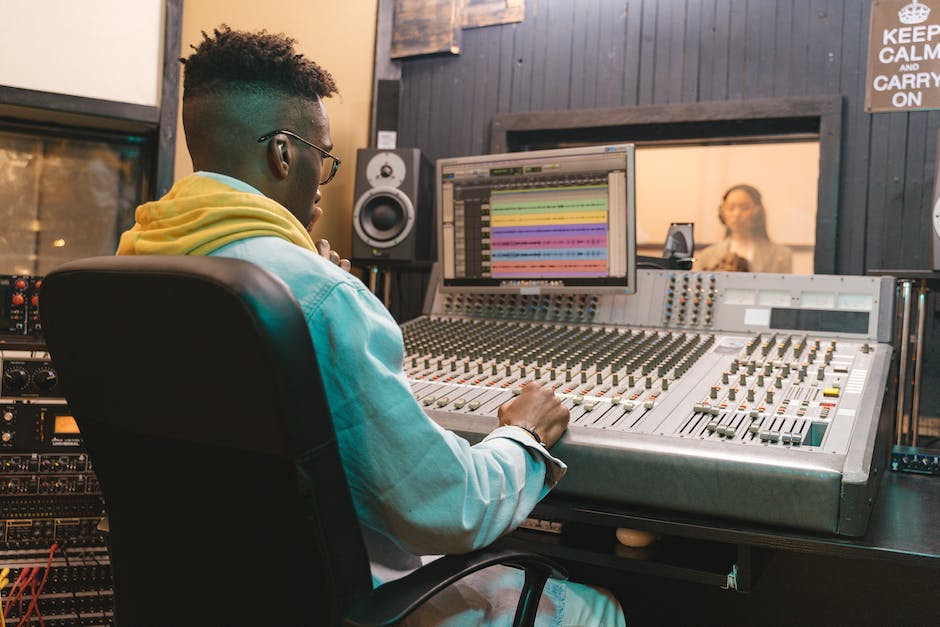
Use of Equalization (EQ)
Equally significant to creating the perfect stereo image is the role of Equalization (EQ). EQ is the versatile palette with which audio engineers can paint the stereo image. In essence, EQ dwells in the realm of filtering frequencies, solely focusing on subtracting or amplifying particular bands in the frequency spectrum. Like a sculptor chipping away at a slab of marble, EQ can refine the soundscape, cutting away unwanted frequencies, and injecting life into others. The power of EQ lies in its ability to customize each channel’s frequency response, creating an engaging and impactful stereo image.
Here’s where the magic truly happens: by making precise EQ adjustments during mixing, the engineer breathes life into the soundscape. It’s akin to adjusting the colors in a painting – enhancing the blues, muting the reds – all to bring the overall picture into more vivid detail.
The key here is subtlety. Just as too much salt can ruin a dish, excessive EQ can distort the immersive sonic journey that stereo imaging initiates. Treat your EQ adjustments like delicate strokes of a brush on a canvas, each adding to the overall aesthetic of the final mix.
To achieve perfect stereo imaging, it’s crucial to understand the concept of frequency masking. This phenomena occurs when a dominant frequency overshadows another within the same range, resulting in a muddled sound. EQ’s role here is to unmask these tones, drawing each sound source into its unique frequency territory. This allows each instrument and voice to have a distinguishable presence in the stereo field and contribute to a more balanced mix.
Low frequencies tend to overlap, cluttering the sound and causing frequency clashes. To address this, cut them off judiciously, giving priority to sources that are most vital in the lower range, typically the kick drum and bass guitar in popular music. This crucial step dramatically enhances the stereo imaging, allowing a crisp and clear mix to flourish.
High frequency content generally contributes to the perceived ‘brightness’ or ‘air’ in a mix. Therefore, a careful boost in this range can assist in making your mix seem more vibrant or open. However, remember to always trust your ears and make these adjustments in the context of the complete mix.
Mid frequencies, often overlooked, are the backbone in your mix, where the bulk of the musical content lies. Here, meticulous EQ adjustments can make the difference between a mediocre and a sensational stereo image.
To truly achieve stereo imaging excellence, one must also consider stereo EQ. This allows the manipulation of frequencies differently for the left and right stereo channels. With this tool, audio engineers can create space by emphasizing the unique elements of each track, crafting a more immersive and captivating listening experience.
Fostering a cooperative relationship between panning, balance and EQ is paramount in generating a compelling stereo image. Acute sensitivity and precise execution of EQ practices, along with willingness to break conventions, form the bedrock for an immersive and powerful stereo image.
In the realm of music creation, EQ is indeed a protagonist, not a mere supporting actor. It facilitates the individuality of sounds, subtly guiding them, creating distinct paths in the musical journey of stereo imaging.
In conclusion, the unwavering dedication to perfect stereo imaging, is a testament to one’s passion for music. It is the love for detailing and precision that separates great from good. Sensitive and skilful use of EQ serves as the gateway to sonic excellence in stereo imaging. A great mix is a symphony of myriad sounds orchestrated harmoniously, and EQ sits at the music conductor’s stand, directing this symphony.

The journey of mastering perfect stereo imaging is indeed an intricate symphony of skilled sound manipulation techniques creatively intertwined. A mastery over how to appropriately distribute different elements of a mix through insightful panning and eloquent use of Equalization (EQ) to balance frequency components shall construct an impressively immersive sound field. This understanding, practice, and application contribute to an audibly spacious, clean mix, handsomely rewarding your senses with the ultimate listening experience. Thus, maneuvering these multilayered aspects of sound recording and reproduction indeed echoes as a testament to sonic finesse, an homage to the immortal art of sound.
The magic of live performances is encapsulated in the electrifying atmosphere, moving harmonies, and the palpable exchange of energy between performers and the audience. The triumph of capturing this collective emotion and complex energy rests in the hands of skilled professionals – photographers, sound engineers, and videographers, who harness their expertise to embalm these fleeting moments of music, bringing them to life long after the last note has faded. Thriving amidst challenges such as unpredictable lighting, varying movements of performers or crowd management, these artisans capably capture the raw, unfiltered essence of performances, beating odds and employing technologically advanced methods. Delving into the landscape of capturing live performances, we explore the victories, barriers, and the pivotal role of advancing technology in shaping this venture.
The Art of Capturing the Energy
A symphony undulates through the crowd – the pulsating rhythm, the soaring melodies, the rhythmic drums, each note cascading down onto enthralled observers. A live performance surpasses the confines of sound alone, morphing into an immersive experience that seizes hold of every sense. A visceral resin of human expression, it transcends recorded music, commanding a unique, irreplaceable space in the world of music. The bedrock question is always: how, then, can this transcendental energy be effectively captured? This is the dilemma whispering in the ears of every music aficionado and the answer herein lies in the interplay of the elements: emotion, community, and technology.
To begin, at the heart of every music performance lies a reservoir of raw, untamed emotion. An electricity spreads from performer to listener, whispered in the language of melodies, and mirrored on the faces of the concertgoers themselves. Capturing this emotion requires another transducer: a photographer. Nimble and perceptive, they etch out the right moments, freeze-framing the passion that envelops the concert. The smallest moments – eyes closed in ecstasy, hands outstretched in a shared chorus, tears spilling down a fan’s face – distill the true spirit of a live show.
Yet, music extends its tendrils further, reaching deeper. It weaves people together, binding them as a cohesive community, dancing to the rhythm of shared human experience. This vital aspect must not be overlooked. One way of encapsulating this shared experience is through the written word. Concert reviews, fan recounts, blog posts – each of them paint a vivid tapestry of shared memories, individual experiences coalescing into an inclusive narrative. These written relics of a concert will continue to echo long after the last note has faded, spiraling through time, feeding the lore of music appreciation and perpetuating the energy of the performance.
Further, technology broadens the avenue for immortalizing live performance. The arrival of digital platforms like Instagram, YouTube, and TikTok allows for instantaneous documentation and sharing. Short videos, clever captions and apt hashtags manage to convey snippets of the energy at play – a fleeting but potent impression of a journey that was. Meanwhile, live broadcasts and virtual reality concerts can provide a widescreen glimpse into the microcosm of the live music scene for those unable to be physically present.
An additional artillery in our arsenal is the process of live recording or “direct to disc” recording. The palpable dynamism, the raw ebb and flow of energy, the organic dialogue between the artist and the audience can be bottlenecked into this old yet irreplaceable method. Granted, it might lack the polish and perfection of studio-generated music, but it possesses an irrepressible spirit that mirrors the atmosphere in the concert hall.
In essence, the energy of a live performance twinkles and thrives in the interstitial spaces – between artist and listener, between melody and silence, between reality and memory. Capturing it effectively demands a multi-sensory approach, a blend of emotion, community, and technology. It’s a creative pursuit that demands as much passion and artistry as the music itself. The echo of a live gig may dampen as days pass, but captured right, its soul will sing loud and clear through the noise of ages.

Challenges in Capturing Live Performances
In the enveloping realm of live music performances, there’s a volatile cadence, a raw narrative waiting to be captured – a dance, often elusive, that unfolds between artist and audience, chord and echo, expectation and surprise. This dance is what professionals strive to capture but are often faced with significant hurdles.
One such hurdle is the ever-intrusive ambient noise. Far from the controlled environment of a studio, professionals have to workaround clamoring crowds, miscellaneous stage noises, and the harsh elements of outdoor concerts. Separating the music from the chaos can be a daunting task, reserving each note’s purity amidst the cacophony, a seemingly insurmountable hurdle.
Accommodating the unexpected is another professional challenge. Unlike the predictable progression of a studio session, live performances are the playgrounds of spontaneity. Concerts are a flurry of improvisations, last-minute setlist changes, spontaneous interactions, and unexpected acoustics. This lack of predictability makes it vital for professionals to stay alert and adaptable, ensuring they capture each surprise serenade and unplanned cadenza with unparalleled precision.
Closely related are the hurdles brought on by the dynamic nature of live performances. The immovable quality of recording studios gives way to a setting where every element – from the lighting to the stage design and audience interaction – is in constant flux. Professionals have to juggle between these elements, capturing not just the music but the environment and ambiance that houses the melody.
The volatile lighting conditions prevailing at live concerts is another substantial hurdle, especially for visual documentation. Bursting pyrotechnics, oscillating spotlights, variable stage lighting and dim audience sections can create a visually chaotic environment. Professionals have to keep vigilance flushing, adjusting their tactics to do justice to the performance unfolding under a spectrum of lighting conditions.
Ease of movement or the lack of it, is another obstacle. Woven into a crowd of zealous fans or ensnared behind a barrier, professionals face the challenge of restrictive movement and limited space. Compromised vantage points and impeding arms thrusting smartphones into the air make the quest to capture something as intangible as musical energy an immensely complex task.
Lastly, the hurdle of musicality itself can’t be ignored. Truly capturing a performance extends beyond mere documentation. It’s akin to translating the unsaid, the unstruck chords of emotion that resonate with each note. Professionals need to immerse themselves deeply, yet objectively, into the fabric of the music to extract and present a concert’s soul, with all its nuanced crescendos and diminuendos.
In the midst of cheering crowds and reverberating beats, there lies the challenge of doing justice to the resounding echoes of a performance. Professionals work tirelessly, navigating through these hurdles, striving to freeze-frame a symphony, to capture a melody’s flight onto a tangible canvas. Overcoming these hurdles, they seize the fleeting moments of passion and euphoria, enshrining them into memories that echo the powerful magic of music’s live performance. These captured moments linger long after the last note fades out, painting a soundscape that continues to reverberate with the energy of the musical dance it bears witness to.

Triumphs in Capturing Live Performances
Gaze into the realm of musical endeavor and you will spot another feat that often goes unnoticed – the engineering innovation of capturing live performances.
Live music is ephemeral, and the endeavor to bottle its fleeting brilliance can be likened to a sunbeam’s attempt to freeze a bubble. It’s a challenge that has resulted in astounding triumphs, demonstrating, once again, the potency of human ingenuity.
Circling back to the golden epoch of music, we stumble upon the Beatles at the rooftop of Apple Corps in 1969. This impromptu live performance, much like a phoenix rising, was captured in its full vivacity, setting the foundation for generations to come. This event marked a milestone in the music world, hinting at the possibility of capturing the unfiltered energy and unpolished rawness of live music.
The sea-change came with the iconic concert of Woodstock in 1969, arguably the most successful attempt to capture a live music festival in its full grandeur. The festival, boasting a line-up of the legends of rock and roll, was an embodiment of an era. The concert film that spooled from this event etched the vibrations of the crowd, the interplay of lights and dark, the muteness and the chaos, into a moving tableau that admiring generations still cherish.
This remarkable fête echoed in the live exploits that followed, one notable instance being Queen’s 1985 Live Aid performance. Freddie Mercury, a maestro who created ripples with every note, poured out his soul on that stage, creating a symphony that still resonates – thanks to the unwavering commitment to preserve that majestic display.
If photographs capture the poetry of frozen moments, audio recordings are the stories that they whisper. Bob Dylan’s “The Bootleg Series Vol 4: Bob Dylan Live 1966”, the famed “Judas” concert in Manchester unfolds such a story of an icon’s standoff with his audience over his musical direction. It’s an exquisite collection of protest and acoustic folk, whose rhythm knocks at the door of one’s consciousness, bearing witness to an unrepeatable moment in music history.
Take a seismic leap into the era of digitization, and we welcome technology as the ultimate troubadour. Daft Punk’s Alive 2007, recorded at Bercy in Paris, stands as testament to this evolution. It illuminates the trajectory through which the captured live performance has traveled, from orchestrated precision to technology-infused intuitiveness. With the ample usage of effects and remixes, the performance echoes the similitude of the lively and enthusiastic crowd, ringing in the ears of music aficionados now and forever.
Peel back the layers, and recognize the triumphant strides in capturing the mood, the ambience, the atmosphere, and the emotion of live music – a feat that shapes and evolves with the music, yet remains true to its essence. It’s an age-old dance between artist and audience, a symphony of experiences, a medley of moments that continue to sing the vibrant ballad of live performances till date. Though a pursuit for perfection in capturing live music prevails, it’s the captured imperfections that truly echo the authenticity of the moment, and contribute to the mosaic of our collective musical memory.

Photo by bukowski on Unsplash
Impact of Technology on Capturing Live Performances
Thriving on the love of sound, there is something innately powerful about capturing live performances. Spontaneity and unedited rawness that lend to the distinctive character of life in motion, it is no simple task, yet technology has had innumerable successes bringing to life the otherwise lost moments on stage.
One cannot help but consider how advancement in tech has modeled our ways of freezing these potent exchanges between performer and spectator. While previously we were reliant on memory, or fortunate to grasp a photo or two, we are now privy to revolutionized gadetry and hi-tech gear allowing each magical instant to be immortalized for enjoyment long after the final chord has been struck.
Among the top technologies capturing this synergy in the realm of live music, high-resolution videos are leading the way. Be it the Bootleg Beatles dispelling the magic of legendary rock across centuries or the heart-stirring renditions from Woodstock – all have been gloriously captured by the lens, providing a recorded legacy for generations of music lovers.
A monumental leap was the advent of 4K technology and drone footage in capturing live performances. Dynamic, unimpeded aerial views, like those supplementing Queen’s unforgettable 1985 Live Aid performance, provide a unique purview. Augmenting snippets from ground level shots and stationary cameras, a fully-immersed experience awaits viewers.
Virtual reality (VR) has been another game-changer, fortifying the conviction that music cannot be separated from the vibrancy and vivacity of its environment. Take Daft Punk’s Alive 2007 set, where VR technology transported audience members who couldn’t physically be at the concert. Melding where the physical and digital worlds meet, VR technology succeeds in capturing not just the audio and visual aspects but the atmospheric nuances that truly define a live performance.
But what happens when the voices of hundreds commingle in a rhythmic uproar or thousands of hands start clapping in organic unison? This may have previously overshadowed the artist’s voice, but here we find another advancement – multi-track live recording. Capable of preserving each instrument and vocal line on a separate track, mixers can create a balanced recording that brings forward the music while still retaining that unmistakable live energy.
It is remarkable how innovative technology like holography and augmented reality (AR) have enhanced the participatory experience of audiences. They facilitate visually-creative backdrops for the artists, transforming a memorable concert into a literally fabulous spectacle. Stage lighting, once worked manually, has evolved into an intricate facet of the performance that syncs up with the rhythm and tempo of the music, intricately tied with the emotional ebb and flow of the performance.
These advancements not only allow us to frame moments we don’t want to forget, they also serve to immortalize the artists in time. They were there during the impromptu Beatles’ rooftop performance, preserving the energy, electric of the crowd, and the sound that filled the air. They documented Bob Dylan’s “The Bootleg Series Vol 4: Bob Dylan Live 1966,” encapsulating not just the music but the palpable rebellion hinted every strummed chord.
The dance in music is not just within notes and melodies, but also within moments, memories, and shared experiences. If life is a song, then capturing live performances is the journal entry of these melodic life moments, filled with authenticity and imperfections that resonate with the human experience, soundtracked by universal tunes. It is through this language of rhythm and rhyme, streamed chords and synced beats, that we become united. Technology, in essence, has become the conduit, amplifying the music of the world, ensuring we don’t miss a beat.

Photo by desimendoza on Unsplash
The journey of capturing live performances has been a dance of triumphs and tribulations, involving innovative minds exploiting cutting-edge technology to continuously redefine the boundaries of this art. Progressing from conventional capturing methods to the implementation of high-definition cameras, drones, and sophisticated audio-visual equipment, technology has intimately intertwined with this field, molding it into what we see today. The extraordinary capability to seize transient moments of musical brilliance and meticulously present them for posterity reflects the immense evolution of this field. On the horizon of unprecedented advancements like virtual reality, it holds immense potential in further elevating the concert experience and preserving performances. It’s fascinating to ponder on the future, to envision how the transformative touch of technology will continue to redefine the art of capturing live performances.
Page 3 of 24 « 1 2 3 4 5 » ... Last »






















